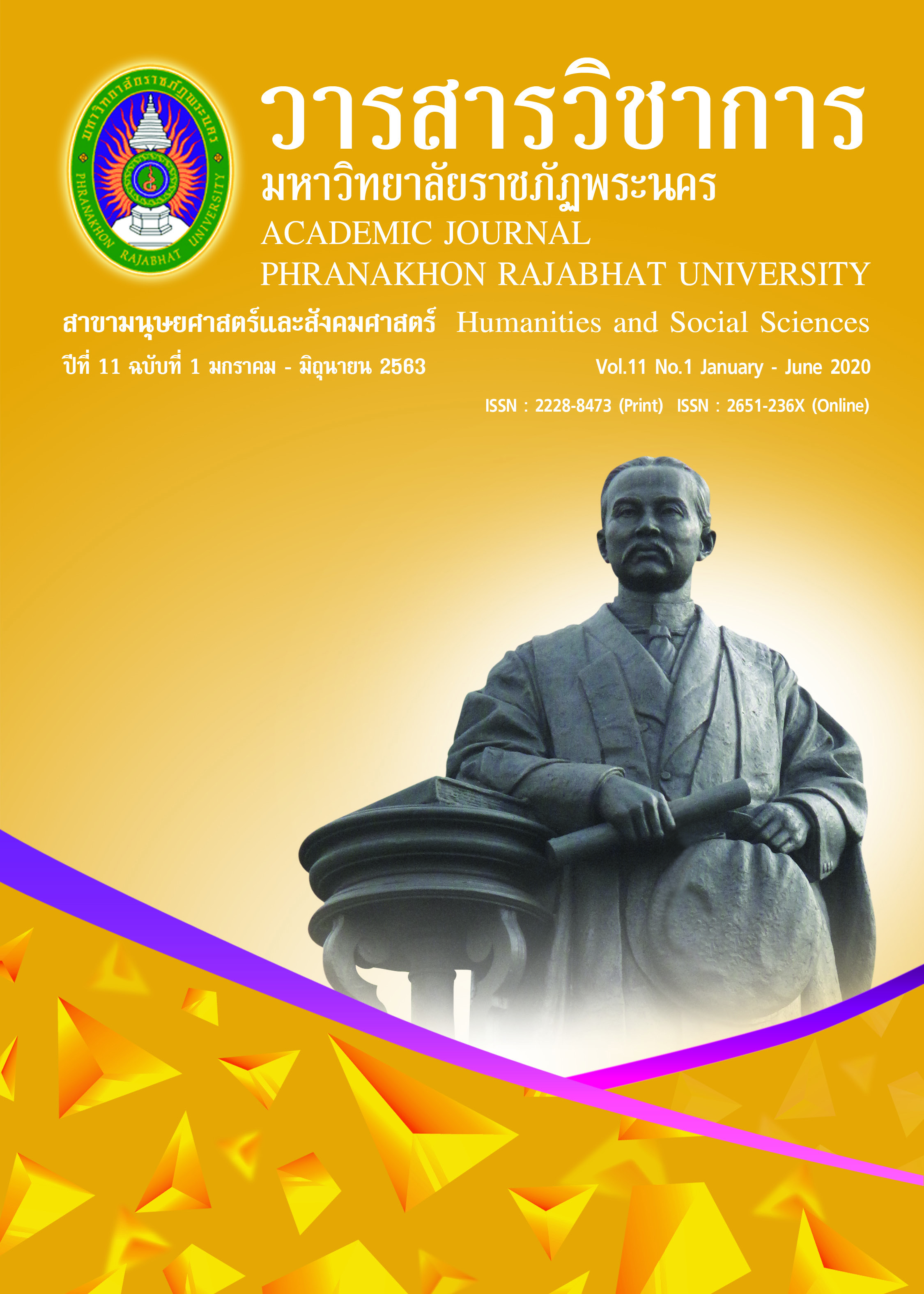THE DEVELOPMENT OF A KNOWLEDGE MANAGEMENT MODEL FOR PRIVATE SCHOOLS IN THE SOUTHERN PROVINCES IN THE ANDAMAN SEA
Keywords:
Model, Knowledge Management, Private SchoolsAbstract
In this dissertation, the researcher examines, develops, and evaluates a knowledge management model for private schools in the southern provinces in the Andaman Sea. A method of research and development was used with the following three steps. (1) Studied and determined the model for the conduct of quantitative research, and then analyzed and determined the model using the technique of factor analysis. (2) Developed a knowledge management model, conducted qualitative research using the technique of focus group discussions, as well as considered the appropriateness, provided recommendations and developed the model in accordance with the recommendations. (3) Evaluated the feasibility of implementing the model by conducting a quantitative evaluation with twenty-one experts. Findings showed that the knowledge management process for the private schools under study in all of the five aspects of 60 items was an important process for the knowledge management model for the schools at the highest level. The factor analysis found ten major factors and sixty sub factors as significant factors of the model with the eigen values ≥ 1. The variance of all variables was explained at 64.10 percent. The knowledge management model for the schools could be determined from the analysis as consisting of ten major factors and sixty sub factors. The descending order was in accordance with the eigen values and the ability to explain the variance of the data. The knowledge management model for the schools under study developed in accordance with the recommendations from focus group discussions was called “A Knowledge Management Model for Private Schools in the Southern Provinces in the Andaman Sea”. The model consisted of three goals: schools organizing activities based on a knowledge base, the continuous accumulation of knowledge and innovation, aiming for excellence, and being learning organizations. Schools had eight process missions with fifty-four activities newly rearranged based on the schools’ management processes. The mission consisted of (1) knowledge identification; (2) knowledge acquisition; (3) knowledge creation and innovation; (4) knowledge storage and knowledge centers; (5) knowledge utilization and knowledge-based activities; (6) knowledge transfer and knowledge distribution; (7) an increase in the competency of knowledge management; and (8) sustainability in knowledge management. All of these must be conducted with the following three mechanisms: (1) the creation and use of a knowledge management operation manual; (2) the organization of knowledge-based activities for the whole school; and (3) the formation of KM teamwork for the schools. The evaluation of the constructed knowledge management model for the schools under study exhibited the feasibility for implementation at the highest level.
References
Bunmepipit. P. (2008). The development of knowledge management model of schools. Dissertation Doctor of Philosophy, Bangkok: Silpakorn University. (in Thai)
Keyser, R. L. (2004). Assessing the Relationship between Knowledge Management and Plant Performance At The Tennessee Valley Authority. Ph.D. Dissertation, Industrial and Systems Engineering and Engineering Management, The University of Alabama
Krejcie, R. V., & Morgan, D. W. (1970). Determining sample size for research activities. Educational and Psychological Measurement, 30(3), 607-610.
McConaghy, N. (2014). Sexual Behavior: Problems and Management. Philadelphia: Lippincott.
Ministry of Education. (2003). National Education Act 1999 B.E. amended Additional (Version 2), B.E. 2545. Bangkok: The Teachers Council of Thailand
Na Ubon, A., & Kimble, C. (2002). Knowledge management in online distance education. Retrieved October 5, 2011, from http://www.chriskimble.com/Publications/Documents/Ubon_2002.pdf
Office of the Civil Service System Development Commission (2014). Civil Servant Regulations Act House 2008, Nonthaburi: Printing House, Office of the Civil Service Commission (in Thai)
Pramphet. K., Sungtong. E. (2015). Model of Knowlegde Management for Teacher Development : A Case Study of Nampudpotpotaram School Cluster Trang Primary Educational Service Area Office 1. Journal of Education, Songkhla: Thaksin University.
Royal Decree on Principles and Good Government Administration Procedures 2003. (2003).Gazette, 120 (100 g), 1-16. (in Thai)
Raksaphong. T. (2008).Development of the knowledge management model for academic administration in basic education school by participatory action RESE. Educational dissertation Doctor of Philosophy, Chon Buri: Burapha University (in Thai)
Singh, S. (2008). The Development and Investigation of a Conceptual Model to Understand Knowledge Management. Dissertation Abstracts International, 69(5), 292-A. (UMI No. NR38516)
Thaveekaew. W. (2010). Development of a knowledge management model for secondary school students in Educational institutions under the Office of the Basic Education Commission. Doctor of Thesis Graduate, Bangkok: Chulalongkorn University. (in Thai)
Downloads
Published
How to Cite
Issue
Section
License
"บทความวิชาการในวารสารฉบับนี้ ถือเป็นความรับผิดชอบของผู้เขียนเท่านั้น"
สงวนลิขสิทธิ์ตามพระราชบัญญัติลิขสิทธิ์




